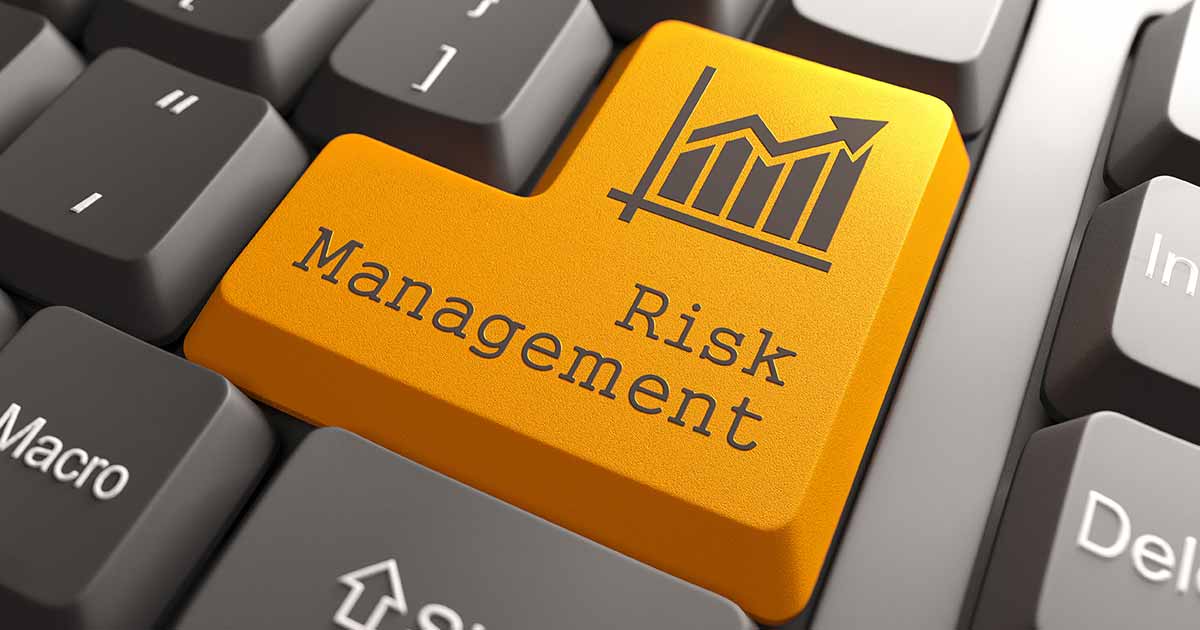How to manage risk in forex? It has always been a hot topic amongst investors. In this article, we will explore 7 forex risk management strategies.
Most people enter the forex trading arena in hopes of acquiring extravagant and quick profits; however, this expectation bubble soon gets ruptured due to a variety of reasons. According to some estimates, around 70% to 90% of retail traders lose their money via forex trading, and its primary reason is “poor risk management”. Improper handling of trade positions and instinct-based trading washes out most of the traders’ accounts. In reality, making money through forex is not so simple; it requires a solid commitment, adequate trading knowledge, and significant discipline on the part of the traders to achieve long-term profitability.
In this article, we have compiled a list of the most prominent forex risk management rules that can help you mitigate the trading perils and attain consistent results.
You may also like: What is Forex Trading and How Does it Work? – 5 Easy to Follow Steps
How to Manage Risk in Forex?
1. Thoroughly learn about forex trading: strategies and patterns
First of all, it is essential to gain substantial knowledge related to trading before diving into this sphere. Before applying any risk management tools, you must hone your trading skills and educate yourself about reliable strategies. Certainly, trading with a non-serious attitude and deficient skills would inflict losses in the long run.
On the whole, it is important to understand that forex trading should not be lightly taken as it involves real money. Before participating in the foreign exchange market, you should properly prepare yourself, draft a trading plan, learn about analysis methods, and practice on a demo account.
2. Determine your risk tolerance
The most popular and golden rule of forex risk management is that you should risk only what you could afford to lose. As the forex market is a highly unpredictable space, risking more than a reasonable amount may quickly burn you out. To emerge as a successful trader, you should carefully analyze your risk tolerance before starting trading.
By assessing your personal financial situation, loss resilience and trading objectives at the right time, you could trade without distress and achieve steady results. Moreover, you could feel more control over your funds and trade without the fear of losing too much if you execute the trades according to your pre-determined risk capacity.
3. Always utilize a stop loss
Losing is a part of trading; however, it is necessary to limit the bad trades and keep the overall ratio of profits higher than the losses. Placing a stop-loss limit on your open trade orders is one of the best ways to protect your funds.
A strategically placed stop loss ensures that you timely get out of a trade if the market moves against your speculation. Moreover, by setting up a suitable take profit and stop loss level, you can trade with a more confident and better demeanour knowing that a proper trade system is in place.
In contrast, trading without a fixed stop loss is equivalent to exposing yourself to unnecessary risk. Note that it is never a good option to burn all your boats for a single trade by stubbornly holding a losing position in expectations of market reversal.
4. Develop a trading plan
Another crucial risk management rule is to constitute an astute trading plan before starting your trading endeavours. You should devise some trading rules and stick to them; instead of doing sporadic trading without any solid basis. The overall trading risk can be significantly mitigated by sketching out your trade entry and exit rules, risk-reward ratio, and risk per trade.
Most new traders make the mistake of setting up a wrong risk-reward ratio for their trades; rather than aiming for a minimum R:R of 1:2 or 1:3 to remain profitable in the long run. In such a case, even if you win two trades, one loss could wipe out your two profitable trades. Similarly, trading without establishing some trade entry triggers can lead to a confused state of mind and frequent wrong choices. Moreover, without a defined strategy and planned daily or weekly targets, the risk of overtrading also increases, negatively impacting your results.
Hence, it is important to adopt a disciplined approach with regular monitoring of the results to improve your long-term performance and optimize your trading plan accordingly.
5. Do not over-leverage the trades
Leverage is the principal component of forex trading which is the major reason for an increased interest in this sphere. Undoubtedly, this tool provides the opportunity to acquire amplified profits; however, what most traders forget is that it also reveals you to an equal amount of risk. For instance, a user having account leverage of 1:50 can place a trade worth $50,000 for every $1000. Although this opportunity appears remarkably lucrative, it also means that you can lose all your capital within seconds if the market moves opposite your trade’s direction.
As a result, it is essential to restrict the leverage ratio to a reasonable level which does not expose your trading capital to too much risk. Most professionals recommend setting a 2% to 3% risk per trade to avoid facing disastrous consequences. Altogether, you should have realistic expectations about your profit targets and avoid over-leveraging the positions to achieve sustained results.
6. Manage your emotions
Keeping your emotions in control while trading is also one of the most critical forex risk management rules. Traders’ sentiments and psychology greatly influence their trading patterns; hence, they must strive to keep a stable state of mind and avoid stressful or reckless trading. Market participants driven by feelings of greed, fear, stubbornness, over-confidence, and anger may take many rash decisions and disregard any trading plan or rules. For instance, many traders significantly over-leverage their trade positions after facing a big loss in hopes of a quick recovery, whereas many adamantly keep holding their losing trades, waiting for a sudden market U-turn.
However, such emotional attitudes do not bode well for traders as this realm requires patience, level-headedness, and firmness to accomplish stable success.
7. Keep track of the financial news
When trading in the foreign exchange markets, it is vital to remain aware of the important financial news and events. Economic news like employment reports, inflation data, and bank decisions can lead to violent price movements. So, if you do not pay enough attention to the global financial happenings, a sudden shock could render your trade setups useless. Consequently, most new traders are recommended to avoid trading during these volatile instances as part of a more risk-balanced and mindful approach.












